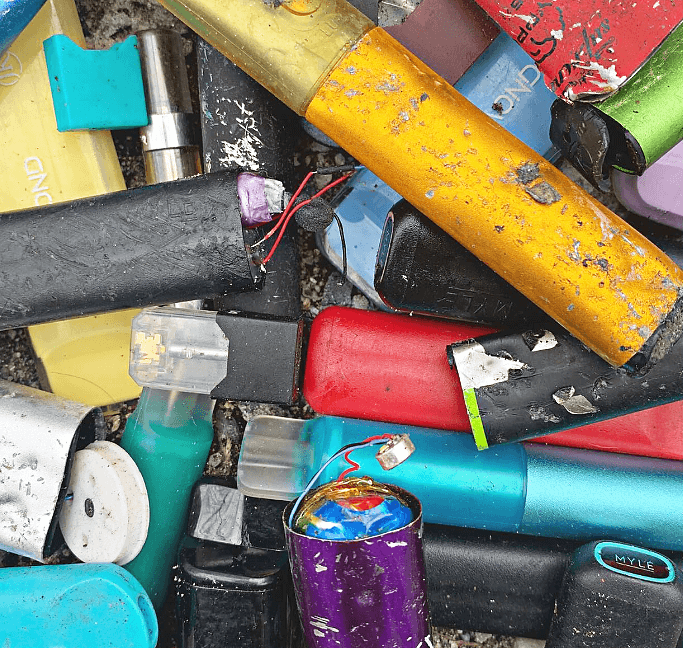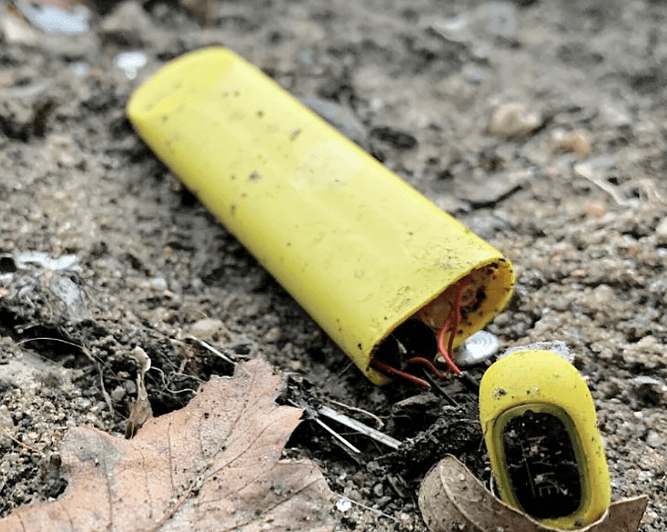
Single use vapes cost as much to dispose of as they do to buy. Photo: Students Against Vaping.
Government authorities took their eyes off the ball when they allowed single use vapes into the country, a leading e-waste operator says.
Award winning Waipā-based Urban Miners has saved tonnes of e-waste from landfill in the three years since it was founded as a not-for-profit organisation by Rotarians David Blewden and Mark Hanlon.
But there is nothing they can do about the single use disposable vapes, which have lithium-ion batteries, with nowhere else to go but landfills.
The government’s recent announcement that all vaping products must have removeable or replaceable batteries is too little, too late, says Blewden.
“Whoever allowed single use disposable vapes to be sold in this country, needs their heads read.”

Urban Miners co-founder David Blewden talking to guests on the intricacies of e-waste.
Urban Miners were recently approached to see whether they would add single use vapes to the electronic waste they keep out of landfill.
“We had a look at them, our guys donned gloves and gowns, poked and prodded around and what’s in them is disgusting.
“There’s some chemical stuff which you suck in, and a little igniter which converts that into a vapour and that is powered by a lithium-ion battery,” said Blewden.
He investigated recycling options and the only choice available was in Australia for more than $10 a unit.
Single use vapes have exotic flavours and packaging which appeals to young people in the same way alcopop drinks do.
They have now been banned in Australia with Federal Health minister Mark Butler saying they came in through the biggest loophole in the country’s history.
They are now only available as part of a smoking reduction programme in Australia.
Blewden said while health authorities here have moved to limit their use, no one seemed to consider the environmental damage caused by single use vapes.
“As soon as they go into the rubbish, they go through a compactor and eventually one of them gets damaged.”
The broken batteries are highly flammable and the toxic fumes pollute the air. In the United Kingdom there has been a dramatic rise in fires at recycling plants
The vapes are encased by non-degradable plastic shells with the content described as an acute hazardous waste.
“We said no to processing them because there is chemical residue, human bodily fluids and they were quite time consuming to take to bits,” said Blewden.
“They can’t be refilled, and they go straight in the waste stream, leaching into the soil and into our waterways.”
The vapes cost anything from $10 upwards and so users would be unlikely to want to add on another $10 to dispose of them through e-waste collections.
A recent survey of young vape users found that more than half did not consider the environment when they bought the single-use variety.
“They came in stealthily through the back door but have already inflicted huge environmental damage,” said Blewden.
- See: What the politicians say.

Single use vapes cost as much to dispose of as they do to buy. Photo: Students Against Vaping.









